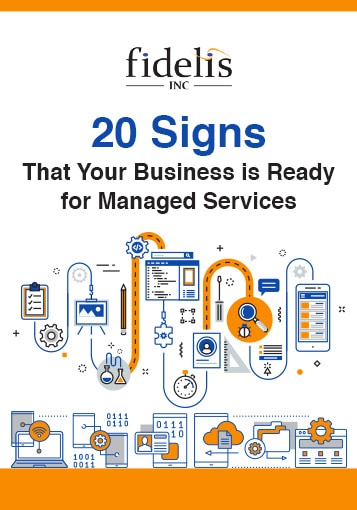Technology can make or break your operations. Oftentimes, companies fall for the hype and opt for every solution that’s considered “groundbreaking” and “productivity-boosting.” But the reality is that technology is more complicated than ever, and you can’t base big strategic decisions on the latest trends.
Companies need to be smart with how they use their IT and implement solutions that actually add massive value. Here are five ways you can leverage technology to drive business growth:
#1. Automate routine tasks
Monotonous tasks like data entry, analytics, and scheduling social media updates aren’t just tedious, they’re also highly susceptible to human error. While there’s often talk of automation making many jobs irrelevant, it’s also important to remember that almost no one actually likes spending their working days on repetitive and unrewarding tasks.
To maintain a high level of employee productivity and morale, it’s much better to have your employees focusing on their core competencies, ones that require critical thinking and a human touch. Automation might seem expensive when starting a business, but it will reduce long-term costs associated with human error and high employee churn.
#2. Reduce software bloat
Sometimes, you can end up with too much technology. It’s all about finding the right balance between business needs and technological solutions. If you have different departments using different systems and updating different databases that don’t work well together, you’ll only end up with a siloed organization where teamwork suffers and problems abound.
Businesses and their employees should only ever have as many systems and programs as they need to get the job done. Interoperability comes with a unified software infrastructure where you don’t have to maintain multiple databases and applications.
To fix this, thoroughly evaluate your software and ask yourself whether it’s critical to your company’s operations. If software only adds more complex steps to your business processes, cut it out as soon as you can.
#3. Adopt proactive security
With data being the most sought-after commodity in the world, it’s more important than ever to keep it safe from the prying eyes of cybercriminals, competitive espionage, and even insider threat. A proactive security model helps predict and prevent incidents before they happen to increase your business’s resilience and reduce the risk of crippling downtime.
The challenge lies in the fact that information security has long been considered a technical problem and an economic burden. Instead, it should be considered an enabler of business growth that lifts the barriers to innovation and lets you build a more adaptable computing infrastructure that’s ready to meet the demands of today’s workforce.
#4. Become more mobile
The days of the nine-to-five office job are steadily falling out of favor as the workforce becomes more mobile and employees are craving a better work-life balance. While there are still some who prefer to work in a familiar office environment, others are at their best at home. Employees should be free to establish their own routines and work where they want with the devices they are familiar with, instead of having to always learn something new from scratch.
Don’t just think about hours worked. You should think about the results achieved. If you adopt a cloud-first business technology strategy, you’ll have many opportunities to boost productivity and morale all while reducing the cost burden on in-house resources.
#5. Derive insights from data
Businesses across every industry sector are creating more and more data to the point it has become impossible to make sense of everything if you’re relying on manual processes alone. Yet despite the proliferation of data and the technologies available to turn it into actionable insights, most businesses have yet to become truly data-driven.
One of the underlying reasons for this is the sheer amount of storage and compute power required to parse increasingly huge quantities of data. That’s another reason to migrate to cloud services where you can tap into important capabilities like artificial intelligence and machine learning on demand, instead of having to make substantial investments on in-house solutions.
Fidelis offers peace of mind with dependable IT support and managed services to businesses in Washington and Oregon. Call us today to see what it really takes to increase your company’s productivity and efficiency.
Download our free eBook!
Before you skip ahead to picking and choosing which IT services you want and how they’re managed, pinpoint precisely where your technology is falling behind by reading our free eBook, 20 Signs That Your Business is Ready for Managed Services.



